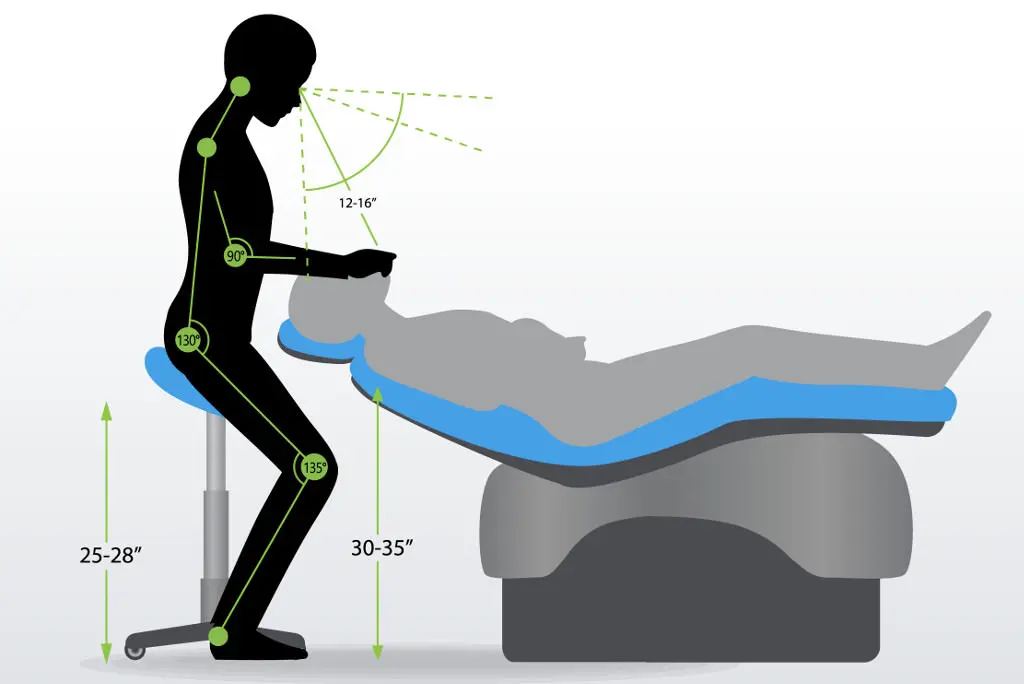From Dental Economics
Scheduling in blocks of time is not just an academic exercise. Almost every dentist knows about this path to profitability and ease of practice, but few dentists actually adhere to it. Why doesn’t everyone schedule in blocks since it is so simple? The answer: it’s a matter of the leader’s commitment … drawing your line in the sand.
Your gross and net are largely determined by what you choose to do in the first two hours of daily practice. If the leader sets the stage for the daily block only to include four units of crown and bridge, three hours of veneer preps or a cosmetic denture, the day will be wonderful. If, on the other hand, your leadership or lack thereof did not draw a line in the sand and you are scheduled for two hygiene checks before beginning a single filling, your whole day is not much fun. The real question is, how committed are you to a perfect schedule?
Your commitment is demonstrated by establishing a daily office goal comprised of individual hygiene and total doctor production. Work with your team on skill-building and conversations with guests to make your morning blocks sacred. What is the production amount you need to have in the morning blocks before a guest’s name goes on the books? Do all of your team members think in blocks, anticipate conversations, and execute well? They will if there is a fair bonus attached to their accountability. Your team will make a consistent difference and contribution if they feel there will be rewards.
Show your commitment by your leadership in a meaningful 10-minute morning meeting where blocks are supported and schedules discussed. Does your walk follow your talk? If the morning blocks are not happening, how do you change thinking, desire, and action? Write on your hand, “If it is going to be, it is up to me.”
One benefit of block scheduling is total service to your guests. Once patients decide to improve their health and smiles, they want it now and expect focus and experience. You can present block-booking to your guests by saying, “We do this so you will have 100 percent of our doctor’s time.” The team then needs to make sure the doctor stays with the patient and completes the treatment by having a perio patient scheduled in hygiene and no other patient (not even a “quick look-see”) allowed opposite your sacred block. Here again, you walk your talk. You promised your patient he or she would be the only one. So, do it!
Leadership is called forth to help alleviate the team’s fear of a blocked patient being a “no show.” If you collect in advance for the treatment, your guest will be as committed as you are. If your team has created a brand of on-time behavior, like-minded patients will be attracted to that commitment and will respect your time. If you have built-in skills that sincerely allow your guests to feel their decision to proceed in treatment is their own and not motivated by your goal or agenda, you will foster a solid patient experience.
A short, but important, evening meeting – postproduction – filled with sincere, specific compliments for your team and looking at the week’s schedule ahead, will reinforce the commitment to blocks.
Another important part of block-booking skills is to “know when to hold ’em, and know when to fold ’em.” Hold the morning block until the afternoon of the day before. The whole team knows the amount of treatment acceptable to have a guest in the block. If by the afternoon it is not happening, your team can create a meaningful morning with several patients from your short call list who are waiting for treatment. Rejoice and make these patients feel as special as your larger treatment cases.
Real block-booking allows you to have time this week for a guest who accepts a larger case. If you are booked with blocks three weeks out, you have probably set a low daily goal, or your team is not privy to that goal. Real block-booking happens every day because of a committed leader who walks the talk. E-mail some of your schedules to us. Show us your blocks. Make it happen!












